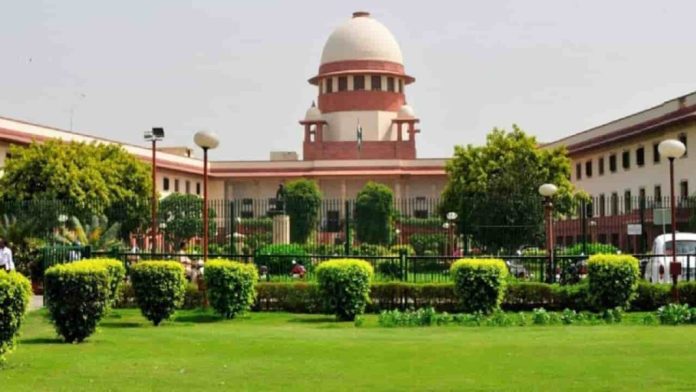The Supreme Court on Friday rejected a petition that sought the introduction of a cooling-off period before former government servants, including judges, were allowed to enter politics.
The Bench of Justice Surya Kant and Justice Sandeep Mehta refused to entertain the petition on the grounds that it was the season for everyone to become interested in public interest. Suddenly before polls, the people became over conscious. The Apex Court then asked petitioner Andhra Pradesh Congress leader GV Harsha Kumar, whether it wanted to argue or withdraw the plea.
The counsel appearing for the petitioner then sought permission to withdraw the PIL, which was allowed by the Court.
Kumar had also contended that only one pension should be given to legislators who were earlier civil servants.
The plea highlighted the increased trend of public servants entering into politics on the eve of elections.
Terming it as ‘unlawful and unethical’ situation, the petition said for the past two elections, political parties in both Andhra Pradesh and Telangana gave tickets to retired Income Tax Commissioners or their wives in the Amalapuram parliament constituency and various other constituencies.
It said that serving bureaucrats and judges have been opting for voluntary retirement from public service before choosing to contest elections immediately by joining a political party or immediately after retirement.
The petitioner said that allowing such a practice to continue could affect the impartiality of government servants and judges, while they remain in service. It added that any form of interest outside the job assigned could influence the decision-making process in administration.
Filed by Advocate Sravan Kumar Karanam, the petition contended that the ‘cooling off period’ would strike a balance between the bureaucrat’s public duty and personal interest. It would also align with the principle of political neutrality among the civil servants.
As per Kumar, civil servants and judges often have access to sensitive and confidential information during their tenure. As such, allowing an immediate transition to a political arena raised concerns about the misuse of such sensitive information. The cooling-off period would help in mitigating such risks, as well as maintaining and upholding public trust, he added.
The petitioner contended that to uphold the integrity and credibility of civil service, maintaining a clear distinction between bureaucracy and politics was crucial, the petitioner stressed.
A cooling-off period would ensure that civil servants have the necessary time to disassociate themselves from their previous roles and responsibilities.


